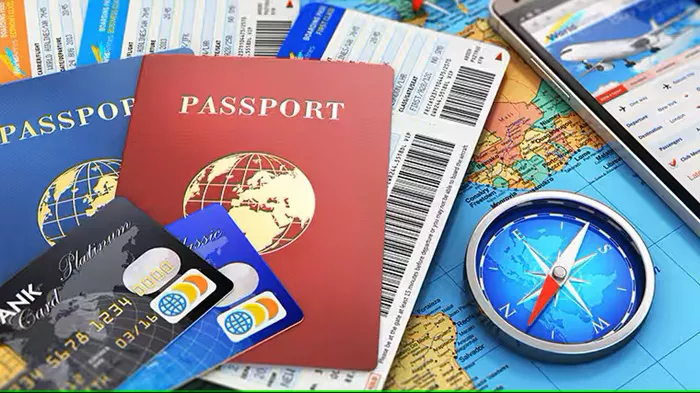When planning a holiday, many travelers focus on the excitement of exploring new destinations, sampling local cuisine, and creating unforgettable memories. However, alongside these plans, it’s essential to consider the unexpected events that could disrupt your journey—such as losing money. This article delves deep into the question: does holiday insurance cover lost money? We will explore the nuances of travel insurance coverage, highlighting what is typically included, potential exclusions, and best practices for safeguarding your finances while traveling.
1. Understanding Holiday Insurance
1.1 What is Holiday Insurance?
Holiday insurance, commonly referred to as travel insurance, is designed to protect travelers against a variety of risks associated with traveling. It provides financial coverage for incidents such as medical emergencies, trip cancellations, and lost luggage. However, not all policies are the same, and understanding the specifics is crucial.
1.2 Types of Coverage
1.2.1 Medical Coverage
This covers expenses related to medical emergencies, including hospital stays and surgeries.
1.2.2 Cancellation and Interruption
This section provides reimbursement for non-refundable trip costs if you have to cancel or cut short your trip.
1.2.3 Lost or Stolen Belongings
Covers personal items that are lost, stolen, or damaged during travel.
1.2.4 Personal Liability
Protects against claims resulting from injuries to others or damage to their property while traveling.
1.3 Specifics on Financial Coverage
Understanding the various forms of financial protection offered by holiday insurance is key to addressing the question of lost money.
2. Does Holiday Insurance Cover Lost Money?
2.1 Direct Loss of Cash
Most standard holiday insurance policies do not cover lost cash. If you lose physical money, such as banknotes, the loss is generally not compensated. This is due to the inherent risk involved in carrying cash.
2.2 Coverage for Stolen Money
If your cash is stolen, this may be covered under specific circumstances. Policies that include personal belongings protection may extend to cash losses if you can prove the theft occurred under conditions covered by your policy (e.g., a hotel break-in).
2.3 Coverage for Lost or Stolen Cards
While cash may not be covered, holiday insurance can often protect you against losses incurred from stolen debit or credit cards. This may include fraudulent transactions made after reporting the theft.
3. The Importance of Keeping Your Money Safe While Traveling
3.1 Strategies for Preventing Loss
3.1.1 Use Credit and Debit Cards
Using cards instead of cash minimizes the risk of losing large sums of money. Additionally, credit cards often come with built-in fraud protection.
3.1.2 Diversify Your Cash
Do not keep all your cash in one place. Instead, divide it between different bags or pockets.
3.1.3 Use a Money Belt or Hidden Pouch
Consider using a money belt or hidden pouch to carry your cash securely.
3.2 Keeping Track of Your Finances
Use budgeting apps or maintain a travel diary to keep track of your spending. This can help you identify if any funds are missing.
See also: Do You Need Holiday Insurance for the UK?
4. What to Do If You Lose Money While Traveling
4.1 Report the Loss
If you lose money, the first step is to report it to the local authorities. This documentation may be necessary for any potential claims.
4.2 Contact Your Insurance Provider
Reach out to your travel insurance provider as soon as possible. They can guide you on the next steps to take regarding claims.
4.3 Keep Detailed Records
Document everything related to the loss, including dates, amounts, and conversations with authorities or your insurer.
5. Alternatives to Holiday Insurance for Financial Protection
5.1 Prepaid Travel Cards
These cards allow you to load money before your trip and limit the amount at risk if they are lost or stolen.
5.2 Emergency Funds
Set aside an emergency fund specifically for your travels, and keep it in a separate account to avoid losing everything at once.
5.3 Travel Wallets and Organizers
Using travel wallets or organizers can help keep your cash and cards secure and organized.
6. What to Look for in a Holiday Insurance Policy
6.1 Review Policy Details
Always read the fine print of any policy to understand what is and isn’t covered, particularly regarding lost or stolen money.
6.2 Consider Additional Coverage Options
If you frequently travel with cash, consider policies that offer additional protections or endorsements for cash losses.
6.3 Compare Different Insurers
Take time to compare various insurance providers and their offerings to find the policy that best fits your needs.
7. The Financial Implications of Losing Money While Traveling
7.1 Budgeting for Unexpected Costs
Traveling without insurance means you may have to cover losses out of pocket, which can quickly add up.
7.2 Emotional and Psychological Impact
Losing money can cause significant stress and anxiety, impacting your overall travel experience.
7.3 Long-Term Financial Consequences
Depending on the amount lost, you may find yourself facing long-term financial challenges, especially if it affects your ability to enjoy your holiday fully.
8. Conclusion
In conclusion, while holiday insurance provides a safety net against many unforeseen circumstances during your travels, it does not typically cover lost cash. Understanding this limitation is crucial for travelers, as losing money can have significant financial and emotional impacts.
To mitigate these risks, employ strategies to protect your money, such as using cards, diversifying cash storage, and keeping careful track of your finances. Ultimately, while holiday insurance is invaluable for covering other potential losses and emergencies, proactive measures to safeguard your money will enhance your travel experience and provide peace of mind.
This outline serves as a foundation for an article that can be expanded to meet your word count requirement. If you need further elaboration on any specific sections or additional details, just let me know!





















